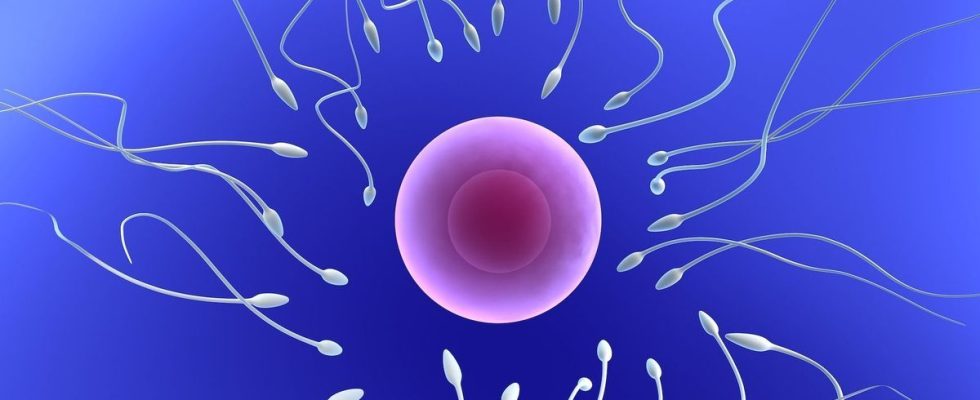Published on
Updated
Reading 2 mins.
A study published in the journal The Lancet reveals that covid-19 can affect sperm quality (quantity, shape and motility of sperm) for up to a year after infection. This link between Covid-19 and sperm alteration had already been established by a study published in 2021.
We are more than three years after the start of the Covid-19 pandemic. A decline that allows scientists to focus on the effects of the disease on long-term health. In 2021, a study found for the first time an alteration in the sperm of men who had been infected with the SARS-CoV-2 virus. The authors of this work had noted a concentration of spermatozoa and a mobility of the latter “significantly less“and significantly more sperm with altered shape among participants with Covid, compared to individuals who did not have the disease.
Two years later, we know more about the impact of Covid-19 on sperm. Researchers have analyzed several parameters concerning the sperm of men affected by SARS-CoV-2 infection. Their results were published in the journal The Lancet June 10.
Infection harms sperm on many levels
The authors of this study were interested in the sperm of 93 patients recruited at the start of the epidemic, during the first and second waves. They measured the amount of sperm present in their semen and also analyzed their mobility and morphology. These various parameters were checked several times over a year.
“SARS-CoV-2 infection was associated with changes in all analyzed semen parameters., say the researchers. Fortunately, this sperm alteration is temporary, but the study indicates that these changes can persist for up to a year after infection in some patients.
A defense mechanism?
The study does not say if these modifications can have consequences on the fertility of the men concerned but the researchers suppose that the effects of the virus on the motility and the DNA of the spermatozoa could in fact be a method of defense. “We speculate that these immune system-related mechanisms aim to prevent the transmission of damaged DNA to offspring.“, they conclude.
Clearly, the virus would make sperm less robust and slower to prevent them from fertilizing an egg. A future study on the subject will perhaps demonstrate this to us…
